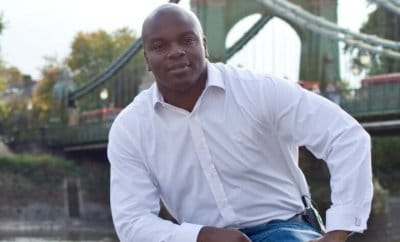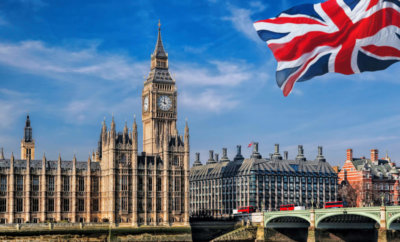Health
Doctors at UK’s National Health Service Experience ‘Unconscious Racism,’ Says British Doctors’ Union

Representational Image
Photo: Bigstock
Black and Asian minority ethic (BAME) staff in the NHS workforce as a whole "are more likely to experience bullying, harassment or abuse from other staff," British Medical Association's council chair Chaand Nagpaul said.
Doctors from the black and Asian minority ethnic ( BAME ) communities remain disadvantaged by the UK’s National Health Service (NHS), according to the British Medical Association (BMA). The discriminatory behavior faced by BAME doctors is not acceptable, BMA head Dr Chaand Nagpaul said in a statement.
Commenting on the entrenched racism in NHS, Nagpaul cited the findings of a BMA survey, which was conducted under a project aiming to find solutions to the challenges before the NHS. Almost 8,000 doctors shared their experiences of working across the NHS for the project, “Caring, Supportive, Collaborative.”
BAME doctors talked of experiencing unconscious racism in everything, from job progression to training and patient interaction in the survey, the statement said. As well as a culture of fear and blame, the survey also showed that BAME (black and Asian minority ethnic doctors) remain disadvantaged by the NHS. Only half of BAME doctors feel respected or culturally included in their place of work, it added.
The survey results showed that only 55 percent of BAME doctors agreed that there was respect for diversity and a culture of inclusion in their workplace, compared to 75 percent of white doctors.
BMA council chair Nagpaul, the first non-white doctor to head the United Kingdom’s leading doctors’ union, added that although BAME doctors form one-third of the medical workforce, only seven percent of them are at senior managerial levels.
“BAME doctors make up more than a third of the medical workforce and play a vital role, day in day out, delivering care to patients across the country,” he said. “Only 7 per cent of very senior managers are from BAME backgrounds.”
While on one hand, BAME doctors have reported being subjected to bullying and harassment, on the other, they are also more prone to be referred to the General Medical Council over accusations of misconduct. They are more likely to have their cases investigated and are more prone to face harsh sanctions following an investigation, the report said.
“BAME staff in the NHS workforce as a whole are more likely to experience bullying, harassment or abuse from other staff. Differential achievement in exams and poorer career progression are another worrying factor, and with independent research showing that this is not related to any lack of ability. In the 21st century, that is not acceptable,” the Indian-origin doctor, who has lived in the United Kingdom since he was seven years old, when his Indian parents moved from Kenya, said.
The BMA analysis of the survey said that it is worrying that BAME doctors are fearful about being unfairly blamed or suffering adverse consequences if they raise concerns.
The survey reported significant differences by ethnicity in terms of confidence in reporting incidents of bullying, undermining or harassment to their employer. It said 49 percent of BAME doctors said they would feel confident reporting these incidents compared to 61 percent of white doctors. Fear in reporting is most likely generated from the fact that BAME doctors are prone to face disciplinary proceedings, it said.
More than twice BAME doctors (18%) in comparison to white doctors (7%) accepted that there is often a problem with bullying, undermining or harassment in their workplace, according to the report.
As many as 74 per cent of doctors, around 81,000, in the NHS were British, figures released in February by the House of Commons Library showed, according to the Daily Mail. The organization includes 6,400 Indian , 2,300 Pakistani, 2,100 Irish, 1,600 Greek and 1,500 Malaysian doctors.



